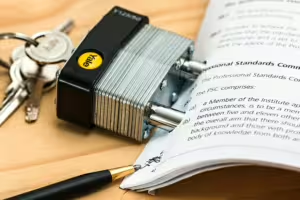Soham Panchamiya observes that the construction industry is in dire need of modernisation, and believes that smart contracts could be the start of the revolution:
“The construction industry is often said to be wrought with inefficient bookkeeping and outdated notification mechanisms. Most construction industry contracting forms, such as FIDIC, include a notification requirement should anything go wrong. This requirement sometimes requires the contractor to inform the employer of any event with a potential delay impact or forfeit any right to claim an extension of time (EOT) or costs from the employer.
For a variety of reasons, this notice requirement is not always met. In fact, quite often, until the contractor sits down to prepare its EOT claim, or indeed, statement of claim for an arbitration, the contractor is not entirely aware if every delay event was properly notified in accordance with the contract. An industry of experts, claims consultants and lawyers exists because of the volume of documentation generated by a single construction project gone awry.
Now imagine a world where a project manager is walking on site, iPad in one hand, opened to a screen which includes all the deliverables that have to be achieved by that day. With a simple check ‘no’, an automatic notification, in the form of the template set out in the contract, would be sent to the employer informing the latter of the potential delay event. This notification would then be automatically and neatly saved in a relevant folder for ‘notifications’ that can always be reviewed should the need arise.
This may seem like an impossibility, but that may not be the case for much longer.
What is a ‘smart’ contract?
A contract must contain an offer, acceptance, consideration and an intention to create legal relations. A ‘smart’ contract contains all of the above, but includes within it protocols which allow for automatic enforcement of contractual conditions. Essentially, a smart contract has everything a traditional contract contains, except that some portions of the smart contract are written in computer code. In effect, these coded provisions operate to give effect to certain contractual provisions, without the parties taking any steps or expending any manpower to execute those conditions manually.
What does that mean in practice?
A prime example of smart contracts greatly easing the burdens on construction companies is in relation to payment terms. One of the biggest issues that contractors and subcontractors face is receiving payment on time. With a smart contract in place, a protocol may be included to trigger payment as soon as delivery is certified.
In another scenario, an EPC contract contains different levels of liquidated damages provisions based on fulfilment of specific milestones or project phases before completion. With a smart contract in place, such damages may be imposed automatically when a milestone or condition has not been fulfilled by a stipulated date.
What are the problems?
While all of this sounds wonderful in theory, the truth is that the kind of blockchain technology used to implement smart contracts is still young.
Moreover, parties would have to invest in substantial infrastructure to be equipped to implement smart contracts in the manner intended. This is, however, the way of the future. Smart contracts are slowly becoming a common fixture in the healthcare and commodities industries. There is no reason to believe that the move into the construction industry is anything but inevitable.
There is, however, scope for concern. How well can smart contracts understand nuance? Code for liquidated damages provisions will likely have to contain numerous exceptions for force majeure events, approved EOTs, variations, provisional works, and numerous other factors. Moreover, what happens when a smart contract has to operate in a situation that is not pre-programmed? Specifically, when the parties are locked in litigation or arbitration.
Would payments still be made or deducted automatically? Would liquidated damages apply ad infinitum? Is there an off switch?
The truth is that there is no answer because smart contracts cannot account for human error or human behaviour. When IBM created the Deep Blue chess-playing system in 1996, it lost its first match against world champion Garry Kasparov. In 1997, Deep Blue won the rematch. The one thing we know about technology is that it always gets better with time. Smart contracts will likely have a teething phase, but what it needs is data.
With enough datapoints and inputs, the technology will grow, improve, adapt and become a fixture of modern business relations.
